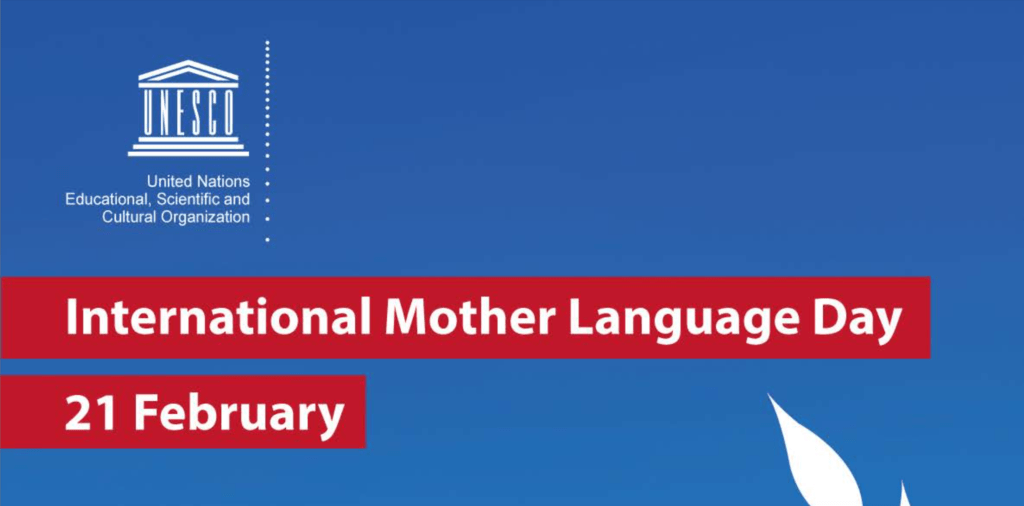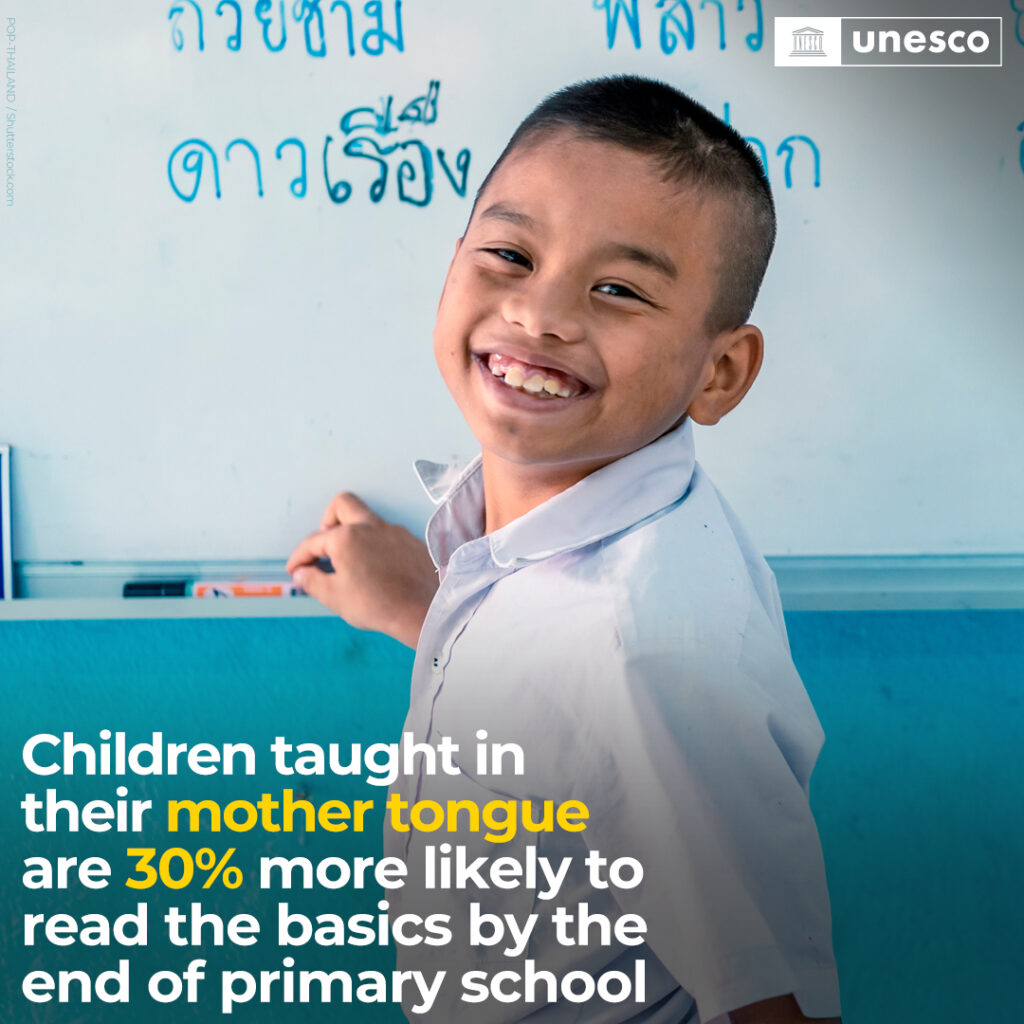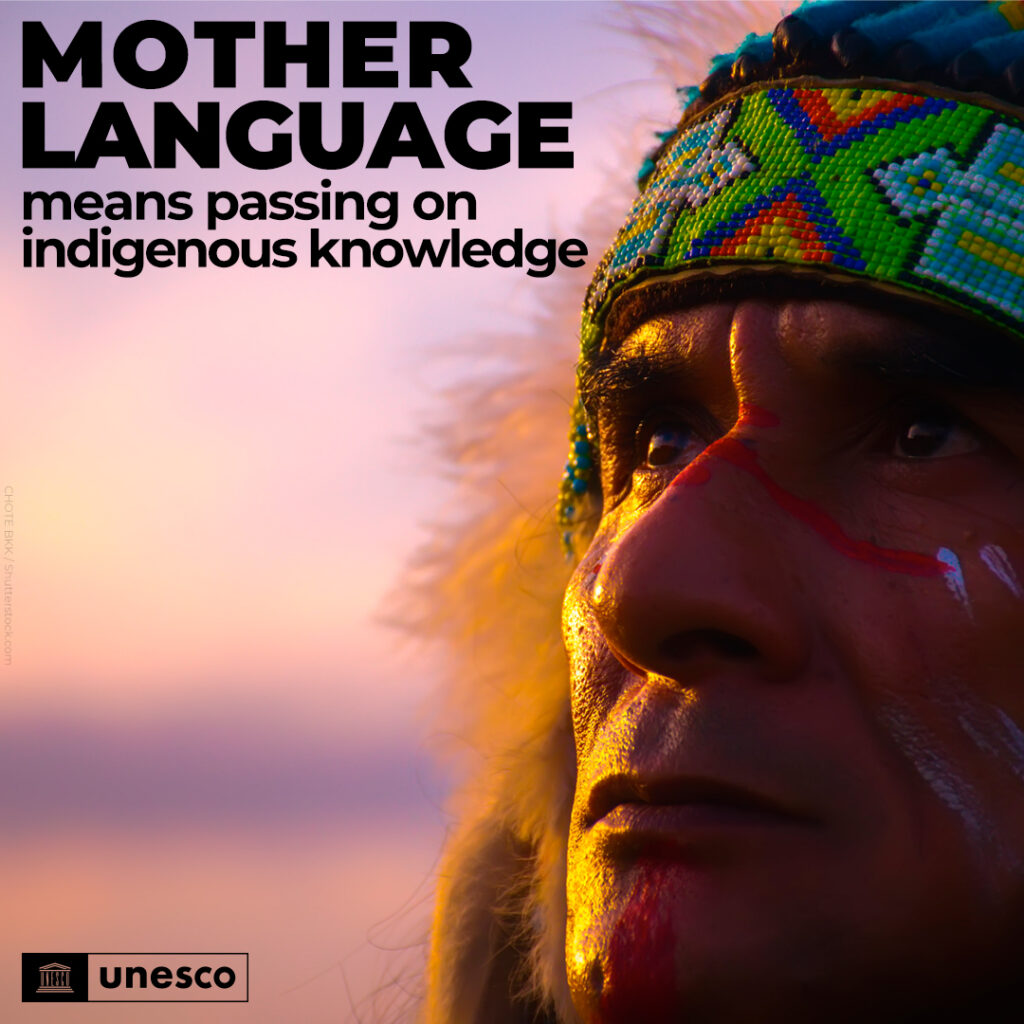Celebrating International Mother Language Day
18th February 2022
International Mother Language Day is an annual event taking place on February 21st that promotes awareness of linguistic and cultural diversity and multilingualism. The initiative was approved at the 1999 UNESCO General Conference.
UNESCO believes in the importance of cultural and linguistic diversity for sustainable societies. Most multilingual and multicultural societies exist through their languages, which convey and preserve traditional knowledge and cultures in a sustainable way.
UNESCO work is focused on preserving the differences in cultures and languages that foster tolerance and respect for others. The indigenous children receive a quality education in their first language. Their teachers work tirelessly on strengthening children’s language skills to dimmish prejudice and discrimination between cultures and by supporting the right to education in a first language. This work is essential to language diversity and its survival.
Languages are the most powerful instruments of preserving and developing our tangible and intangible heritage. All moves to promote the dissemination of mother tongues will serve not only to encourage linguistic diversity and multilingual education but also to develop fuller awareness of linguistic and cultural traditions throughout the world and to inspire solidarity based on understanding, tolerance and dialogue.
UNESCO
The history
The idea to celebrate International Mother Language Day came from Bangladesh and their language movement.
The history takes us back to 1947 when Pakistan was created. Initially Pakistan was divided into two parts, East Pakistan (currently known as Bangladesh) and West Pakistan (currently known as Pakistan). The two parts had a different language and culture and were separated by India in between.
In 1948, the then Government of Pakistan declared Urdu to be the sole national language of Pakistan, even though Bengali was spoken by the majority of people living in East Pakistan (now Bangladesh) and West Pakistan (now Pakistan).
Since the majority of the population living in East Pakistan spoke Bangla, this sudden change led to protests.
On 23 February 1948, Dhirendranath Datta, a lawyer from East Pakistan raised a demand in the Constituent Assembly of Pakistan asking for Bangla to be one of the national languages, in addition to Urdu.
But the demand didn’t end how they hoped so the joint force, inclusive of students at the University of Dhaka and general public, continued the protests by arranging rallies and meetings.
The events took the turn for the worst on the 21st of February 1952 when Pakistani police opened fire on the rallies, killing many protestants and injuring hundreds of others. A rare event in the history, where numerous people sacrificed their lives for their mother tongue.
International Mother Language Day is now a national holiday in Bangladesh when local people visit the Shaheed Minar, a monument built in memory of the martyrs and its replicas, to express their deep sorrow, respect and gratefulness to them.
Fast forward to 20th century, on 17 November 1999 the 30th General Assembly of UNESCO unanimously resolved that “21st February be proclaimed International Mother Language Day throughout the world to commemorate the martyrs who sacrificed their lives on this very day in 1952”.
Safeguarding Linguistic Diversity
Languages are our identity. They help us communicate, learn, develop and integrative with society. Nevertheless, the globalisation process puts many languages under threat of extinction. Every time a language disappears so does the world’s rich tapestry of cultural diversity. Traditions, memories, expressions, and habits are also lost.
The hard truth is that every two weeks a language disappears, taking with it an entire cultural and intellectual heritage.
At least 43% of the estimated 6,000 languages spoken in the world are endangered and only a few hundred languages have been given a place in education systems, and less than a hundred are used in the digital world.
International Mother Language Day in 2023

Linguistic diversity is increasingly threatened as more and more languages disappear.
More than 6,700 languages are spoken around the world. But at least 40% are threatened with extinction.
While mother-tongue education is fundamental to the full development of individuals and transmission of language heritage, 40% of the global population does not have access to an education in a language they speak at home or understand. And although progress in multilingual education, particularly in early schooling, is being made, it is still relatively slow.

This is particularly common in countries that adopt monolingual systems of education. Offering education in only one language, that is not shared by all learners, can create issues and have a negative impact on learning performance and literacy skills.
To address these challenges, UNESCO has been advocating for the mainstreaming of multilingual education based on mother tongue. It facilitates access to and inclusion in education for population groups that speak non-dominant languages, languages of minority groups and indigenous languages.
The potential of multilingual education is enormous.
Multilingual education
- enhances the quality of education by emphasising the importance of cultural and linguistic diversity, the relevance of learning to learners’ lives and mutual understanding.
- increases dialogue and interaction among learners as well as between learners and teachers.
- facilitates participation and action towards sustainable development by giving access to new knowledge and new cultural expressions.
The 24th celebration of International Mother Language Day will focus on the theme ‘multilingual education – a necessity to transform education’.
The aim in 2023 is to celebrate ways of expressing the world in its multiplicity, committing to the preservation of the diversity of languages as a common heritage and working for quality education in mother tongues for all.
“To help fight the current global learning crisis, while preserving the linguistic diversity which is an essential cultural element, UNESCO urges governments to embrace multilingual education based on the mother tongue from the earliest years of schooling. We know it works – there is empirical evidence to prove it helps children learn.”
Audrey Azoulay, Director-General of UNESCO
The event organised by UNESCO on 21st February 2023 will investigate and discuss the potential of multilingualism to transform education from a lifelong learning perspective and in different contexts.
If you are in Paris on the 23rd, you can attend the event at UNESCO Headquarters. More information can be found here.

